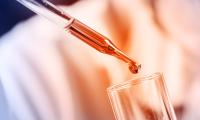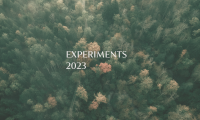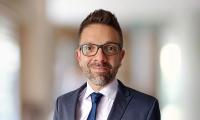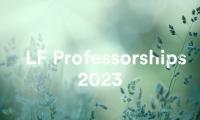The Lundbeck Foundation grants 60 million Danish kroner to bold scientific ideas

An overwhelming total of 293 applications poured in when the Lundbeck Foundation launched a new research funding programme – LF Experiments – earlier this year.
The applications have now been reviewed and 31 projects ended up receiving funding. Each project receives almost DKK 2 million on average, and the total allocation to LF Experiments amounted to DKK 60 million.
The point of LF Experiments is to support bold, ground-breaking ideas with potential to ‘change the way we view the world’. Likely recipients of funding are so-called high-risk projects, and the Lundbeck Foundation is making a deliberate choice to back exceptionally innovative and eccentric talents in the hope of promoting outstandingly creative solutions.
‘But there’s no way around it if a programme such as LF Experiments is to promote solutions that will carve out entirely new paths. And we’re happy to take the risk, to give a boost to some of the inspiring and ‘crazy’ ideas that lurk in the Danish research environment,’ says Line Vildbrad Kristensen, who holds an industrial PhD in neuroscience and is science liaison in the Lundbeck Foundation Grants & Prizes department.
The following researchers have received funding:
University of Copenhagen:
Yvonne Adams, assistant professor, Centre for Medical Parasitology: DKK 1,997,000 to attempt to develop a method that will use proteins from human malaria parasites to transport medicines to the brain.
Anders Asbjørn Jensen, associate professor, Department of Drug Design and Pharmacology: DKK 1,991,000 to attempt to design a new type of drug for the treatment of Parkinson’s disease, a drug that has fewer side effects than those on the market today.
Mette Burmølle, associate professor, Department of Biology: DKK 1,824,000 to try to develop a method for combating biofilm formation on implants – by impregnating the implants with beneficial bacteria (probiotics).
Anders Østergaard Madsen, associate professor, Department of Pharmacy: DKK 2,000,000 to attempt to develop a system based on artificial intelligence, the aim being to improve the accuracy of x-ray crystallography by recognising specific patterns that are unidentifiable by the human eye.
Kenneth Lindegaard Madsen, associate professor, Department of Neuroscience and Pharmacology: DKK 1,995,000 to study transmembrane proteins.
Dennis Sandris Nielsen, professor: DKK 1,998,000 to try to develop a method which will improve the safety of faecal microbiota transplantation, i.e. when a patient receives gut bacteria from a donor. This therapy is currently being considered for treatment of a range of diseases. The issue is how to eliminate pathogenic microorganisms which may come from the donor.
Steffen Nørgaard, postdoc, Biotech Research and Innovation Centre (BRIC): DKK 1,983,000 to study genetic information in cells, outside the DNA. The study focuses on brain disorders.
Jannick Prentø, associate professor, Department of Immunology and Microbiology: DKK 1,990,000 to research into a new type of vaccine for the hepatitis C virus (HCV). WHO estimates that, every year, HCV kills 400,000 people worldwide.
Leise Riber, assistant professor, Department of Biology: DKK 1,983,000 to study the resistance of pathogenic bacteria to antibiotics, among other things to identify the weak points of resistant bacteria. These may give ideas for drug design.
Morten Scheibye-Knudsen, associate professor, Department of Cellular and Molecular Medicine: DKK 2,000,000 to conduct animal trials to test a molecule which may have the potential to boost repair of DNA damage. The project focuses on Alzheimer’s disease.
Kaituo Wang, assistant professor, Department of Biomedical Sciences: DKK 1,992,000 for studies of membrane proteins using cryo-electron microscopy.
Kyoung Jae Wong, associate professor, Biotech Research and Innovation Centre (BRIC): DKK 1,999,000 to develop a new method for studying cell interactions.
Technical University of Denmark (DTU):
Amalie Kai Bentzen, postdoc, Division of Immunology & Vaccinology: DKK 1,989,000 to study the role of T cells in autoimmune diseases.
Nikolaj Sorgenfrei Blom, senior researcher, Department of Chemical and Biochemical Engineering: DKK 1,994,000 to investigate the effect of electromagnetic fields on key biological processes.
Maria Dimaki, senior researcher, Department of Biotechnology and Biomedicine: DKK 1,999,000 to seek to develop a device to help diagnose malaria based on an individual’s exhaled CO2.
Lars Hanson, associate professor, Department of Health Technology: DKK 1,501,000 to attempt to develop a new and more accurate technique for displaying brain activity and deformations.
Sarvesh Kumar Srivastava, postdoc, Department of Health Technology: DKK 1,999,000 to attempt to develop a micro robot to deliver cancer drugs directly into a tumour.
Rigshospitalet, University of Copenhagen:
Claus Yding Andersen, professor, Laboratory of Reproductive Biology: DKK 1,999,000 to investigate the potential for developing a hormone-producing implant as an alternative to the hormones currently prescribed to many menopausal women.
Aarhus University:
Yuya Hayashi, postdoc, Department of Molecular Biology and Genetics: DKK 1,767,000 to attempt to elucidate the role of small ‘packages’ of RNA in intercellular communication.
Magnus Kjærgaard, assistant professor, Department of Molecular Biology and Genetics: DKK 2,000,000 to research into the molecular basis of processes that strengthen connections between neurons.
Henrik Lauridsen, assistant professor, Department of Clinical Medicine: DKK 1,999,000 to study cardiac regeneration in the aquatic axolotl salamander. The objective is to gain inspiration for design of regenerative treatment for damage following cardiovascular diseases in humans. Therapies of this kind do not exist today.
Jacob Giehm Mikkelsen, professor, Department of Biomedicine: DKK 2,000,000 to increase the accuracy of gene editing – gene repair. He will attempt to develop a method for increasing the capacity that, today, is achieved by so-called CRISPR technology.
Doug Speed, assistant professor, Aarhus Institute of Advanced Studies: DKK 1,855,000 to attempt to develop a model which, based on an individual’s DNA, will provide a clinically useful prognosis for the person’s risk of developing various diseases. The model is based on artificial intelligence.
Bo Thomsen, associate professor, Department of Molecular Biology and Genetics: DKK 1,879,000 for whole-genome studies of ageing factors, including genes which are key to extraordinarily long life. One of the study’s animal models is the Greenland shark. As the world’s longest living vertebrate, it can live to be around 500 years old.
Glostrup Hospital:
David Møbjerg Kristensen, senior researcher: DKK 2,000,000 to investigate whether painkillers containing paracetamol may contribute to the fact that around 60% of all human pregnancies end in miscarriage within the first weeks.
Filadelfia Epilepsy Hospital:
Rikke S. Møller, associate professor: DKK 1,610,000 to study epileptic encephalopathies. These are aggressive epileptic seizures which often have a devastating impact on a child’s cognitive development.
Aalborg University:
Anders Olsen, associate professor, Department of Chemistry and Bioscience: DKK 1,993,000 to study the possible influence of gut bacteria on the onset of age-related neurodegenerative diseases.
Michael T. Overgaard, professor, Department of Chemistry and Bioscience: DKK 2,000,000 to study rare mutations of a signal protein. These mutations seem to be particularly prevalent in people with a high level of cognitive function. The mutations may contain information of potential value for the development of new therapies for neurodegenerative disorders.
Alireza Rezaniakolaei, associate professor, Department of Energy Technology: DKK 1,997,000 to seek to develop a special mini-generator that will supply life-long power to a pacemaker by harvesting the kinetic energy generated by heart muscle activity. It will mean that pacemaker users will no longer need to replace the batteries every six or seven years.
Aarhus University Hospital:
Rosella Talotta, postdoc: DKK 1,655,000 to research into systemic sclerosis (scleroderma).
University of Southern Denmark:
Agnieszka Wlodarczyk, postdoc, Bridge Brain Research: DKK 2,000,000 to investigate whether it is possible to replace dysfunctional supporting cells (microglia) with younger and healthier supporting cells in patients with Alzheimer’s disease. Microglia clean up the central nervous system and remove, for example, dead cells.


